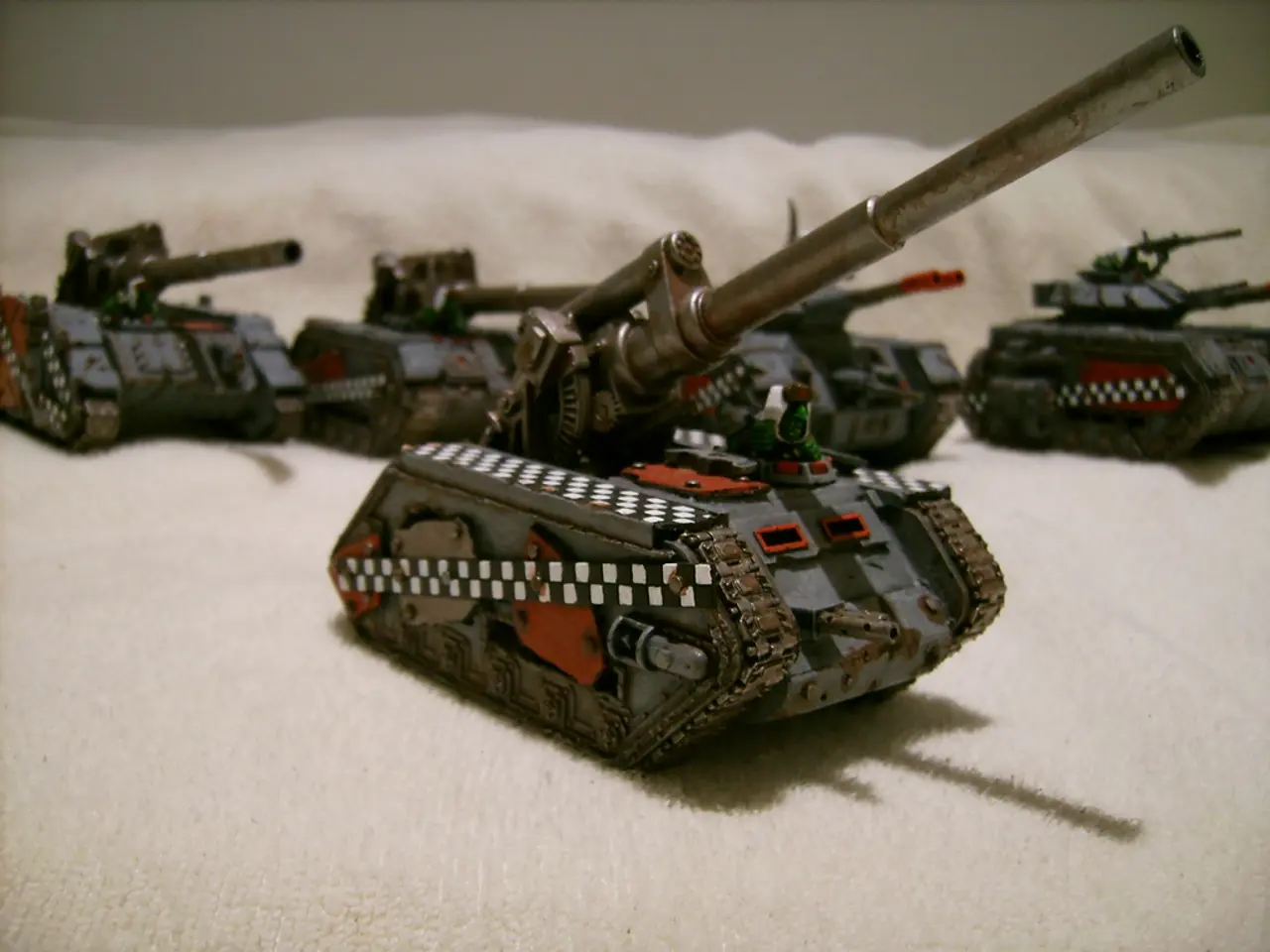Germany contemplates deploying peacekeeping forces to Ukraine
In the ongoing conflict between Ukraine and Russia, Germany's potential participation in a peace process has become a topic of heated debate among its political leaders.
Chancellor Friedrich Merz has expressed a keen interest and great responsibility for Germany's role in a potential resolution, emphasising the country's significance in international conflicts. However, his stance has faced opposition within his own party, with Michael Kretschmer, head of the CDU minority government in Saxony, being one of the strongest voices of dissent.
A survey conducted by Civey reveals that 51% of German respondents are opposed to their country's participation in a peace mission in Ukraine. This opposition is not limited to the CDU, as politicians from all political parties, particularly those in eastern Germany, have expressed skepticism or outright rejection of the plan to deploy troops to Ukraine.
The center-left Social Democrats, in particular, have shown resistance to the deployment of German soldiers for a possible peacekeeping force in Ukraine. JD Vance, on the other hand, has suggested that Europe should take the "lion's share" of security guarantees.
The discussion revolves around ending Russia's war of aggression in Ukraine. Some politicians, such as Johannes Winkel, head of the CDU's youth organization, Junge Union, support the idea of taking responsibility in Ukraine. However, Johann Wadephul, Germany's Foreign Minister, has expressed caution about a mission in Ukraine, stating it might overwhelm Germany.
The Green Party, led by Omid Nouripour, has suggested building up Europe's own protection forces to provide security guarantees to Ukraine. Jan van Aken, leader of the Left Party, has proposed a UN peacekeeping force of 30,000 to 40,000 soldiers as a security guarantee for Ukraine, with China's participation being important to avoid conflict.
Recent discussions among US and European allies and Russia's tentative agreement to such guarantees suggest that possible security guarantees for Ukraine could be provided by the United States and European countries, without Ukraine formally joining NATO. This could involve offering NATO-like protections similar to Article 5 of the NATO treaty.
Not everyone is in favour of this approach. Russian Foreign Minister Sergey Lavrov considers the deployment of European forces in Ukraine as "completely unacceptable." Alice Weidel, leader of the AfD, has warned that Germany could become a target and called for reconciliation with Russia instead of constant confrontation.
The summit in Washington between President Trump, President Zelenskyy, and other leaders has further fuelled the debate. The Green Party has expressed skepticism over the results of the summit, while the Left Party and the AfD have been particularly vehement in their rejection of the idea.
As the discussions continue, it is clear that Germany's role in the potential resolution is a point of contention. Any decision on deploying troops to Ukraine would need to be discussed within Merz's coalition government, including a potential need for a mandate from the Bundestag. Friedrich Merz has suggested that Germany should focus on strengthening the Ukrainian military, rather than deploying troops directly.
In conclusion, the debate over Germany's potential role in a peace process for Ukraine is complex and multifaceted, with opinions divided among political parties and the general public. As the situation in Ukraine continues to evolve, it remains to be seen how Germany will contribute to a potential resolution.
Read also:
- ICE directed to enhance detention conditions following NYC immigrants' allegations of maltreatment
- Israeli finance minister issues warnings about potential annexation of West Bank territories
- United States faces rebuttal from South Africa over allegedly deceitful human rights report and assertions of land expropriation
- Accident at Rodalben Results in Injuries; Geoskop Area near Kusel Affected After Stormy Weather








